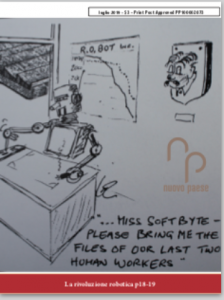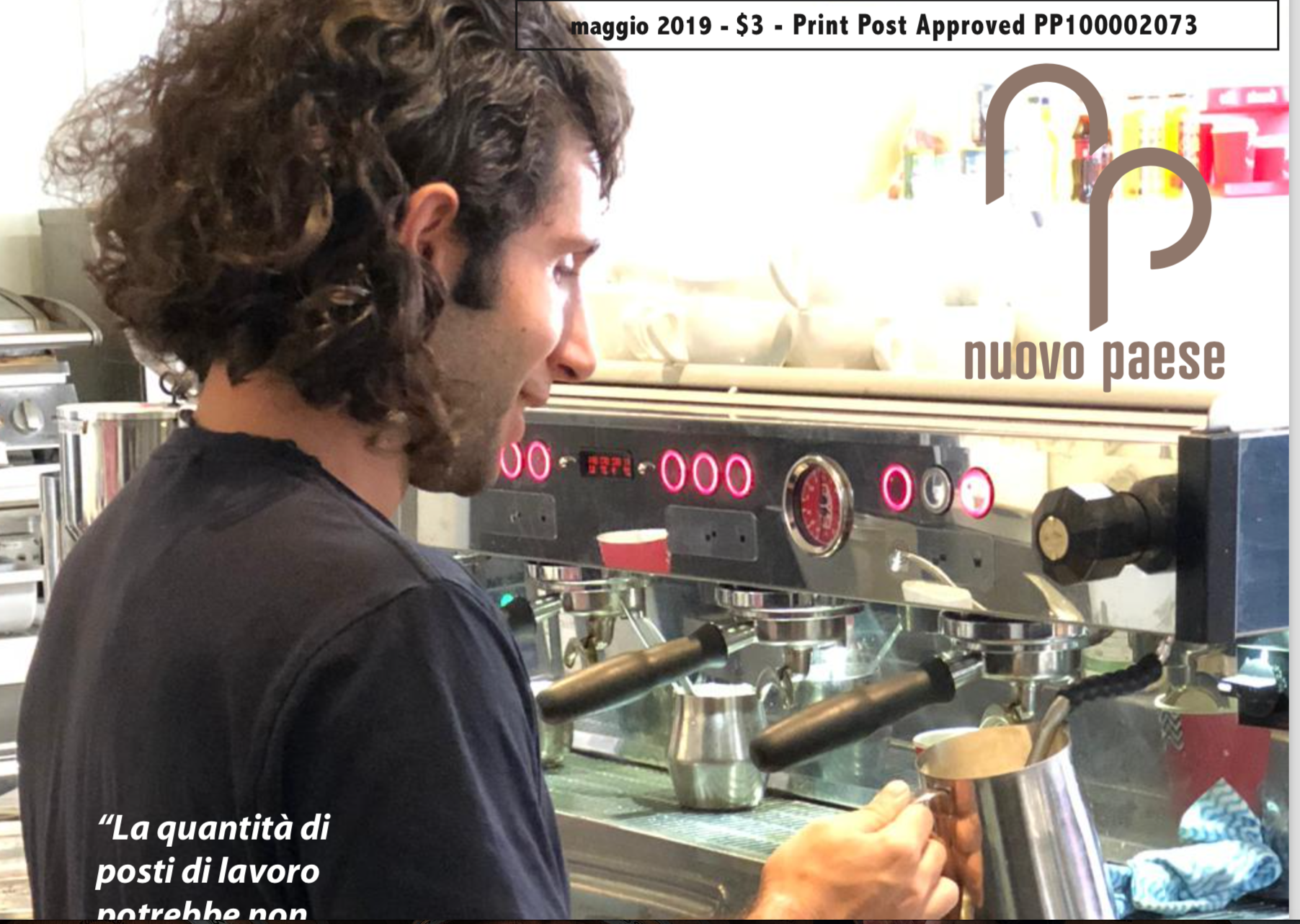 Il mercato siamo noi
Il mercato siamo noi
Ci sono molti miti sull’economia di mercato che sono spesso mascherati dalle sue complessità o perpetuati da interessi acquisiti.
Questi processi sono stati aiutati dalla globalizzazione dell’economia di mercato che rende ancora più difficile identificare cause ed effetti.
La disoccupazione, l’inflazione, il costo della vita, i tassi di interesse ed altri termini economici suggeriscono processi precisi se non scientifici e nascondono ulteriormente la realtà che l’economia di mercato siamo proprio noi – le persone.
Giganti aziendali come Google e Facebook possono esercitare un’enorme ricchezza e influenza, ma i beni basilari, e cioè pane, acqua, abitazione e tutti quei prodotti e servizi essenziali per le esigenze di vita, personali e sociali dovranno comunque continuare ad essere prodotte.
La stima generale accettata è che i due terzi, se non di più, dell’attività economica sono generati dai bisogni della comunità.
Uno dei problemi attuali delle economie relativamente mature, come quella australiana, è che hanno raggiunto un punto di stagnazione a causa di un incrocio di fattori: l’invecchiamento della popolazione, la saturazione dei consumi e il calo del reddito disponibile. Qui, il settore privato, nonostante la sua crescente capitalizzazione, non è strutturato, anche se c’era una volontà, di rispondere. I consigli di amministrazione non hanno la responsabilità legale di gestire i dilemmi sociali e quando si verificano disfunzioni economiche significative, l’appello viene rivolto ai governi. I governi sono stati chiamati a mitigare i fallimenti della crisi finanziaria globale ed abbondano esempi di governi che salvano gestioni fallimentari del settore privato.
Un esempio recente e rivelatore dell’importanza dell’intervento del governo sono i recenti dati ABS che mostrano che il settore pubblico è stato responsabile di circa l’85% dei posti di lavoro creati in Australia negli ultimi 12 mesi.
L’attuale richiesta di progetti infrastrutturali è un altro potente segnale del ruolo di stimolo atteso dai governi, in particolare dal settore privato alla disperata ricerca di veicoli di investimento sicuri per i suoi componenti pieni di liquidità.
Anche se raramente viene evidenziato che se i tassi di interesse bancari sono a livelli storicamente bassi, ciò è dovuto anche al fatto che ci sono molti soldi inattivi in cerca di azione.
Anche gli organismi conservatori e imprenditoriali hanno capito che l’economia siamo noi e che hanno un interesse per le politiche che sostengono l’attività economica come le crescenti richieste di aumento dei pagamenti Newstart per i disoccupati.
Non c’è dubbio che il motore reale e sostenibile per l’economia di mercato siamo noi e, tra le molte contraddizioni presenti, nessuna è più acutamente ingiusta del fatto che la parte del leone dell’attività economica viene appropriata da pochi, con mezzi vari, e giustificata poi da molti miti.
There are a lot of myths about the market economy which are often camouflaged by its complexities or perpetuated by vested interests. These processes have been helped by the globalisation of the market economy that makes it even more difficult to identify cause and effect.
Unemployment, inflation, cost of living, interest rates and other economic terms suggest precise if not scientific processes and further hide the reality that the market economy is us – people.
Corporate giants like Google and Facebook may wield enormous wealth and influence but the basics such as bread, water, housing and all those products and services essential for personal and social needs still have to be produced.
The accepted general estimate is that two thirds if not more of economic activity is generated by community needs.
One of the current problems in relative mature economies, like that in Australia, is that they have reached a stagnant point due to a combination of ageing populations, consumption saturation and a fall in disposable income.
Here, the private sector, notwithstanding its increased capitalisation, is not structured, even if there was a willingness, to respond. Board rooms do not have the legal responsibility to deal with social dilemmas and when significant economic dysfunction happens, the call is for governments to act.
Governments were called in to mitigate fall-outs from the Global Financial Crisis and examples of governments bailing out private sector failures abound. A revealing example of the importance of government intervention is recent ABS data that shows that the public sector was responsible for about 85 per cent of the jobs created in Australia in the past 12 months.
The current call for infrastructure projects is another powerful sign of the stimulus role expected from governments, particularly from the private sector desperate for safe investment vehicles for its cashed-up constituents. Although it is rarely highlighted when bank interests rates are at historically low levels it is also due to the fact that there is a lot of idle cash looking for action.
Even conservative and business bodies have understood that the economy is us and that they have an interest in policies that sustain economic activity such as the growing calls for increasing Newstart payments for the unemployed.
There is no doubt that the real and sustainable engine for the market economy is us and of the many contradictions present, none is more acutely unfair then the fact that the lion’s share of economic productivity is taken by the few through various means, and justified by many myths.




 Fare shopping in giro non è un’opzione
Fare shopping in giro non è un’opzione
 FILEF and the
FILEF and the 

 In the FILEF information evening series on advocacy and human rights, the event on Thursday 26th September 2019 at the Leichhardt Library was focused on the rise of the far right and of new nationalisms in Europe.
In the FILEF information evening series on advocacy and human rights, the event on Thursday 26th September 2019 at the Leichhardt Library was focused on the rise of the far right and of new nationalisms in Europe. Tecber Ahmed Saleh, Western Sahara human rights advocate, gave us an update on a case of unfinished decolonisation, in Western Sahara, where a struggle for independence continues since Morocco’s invasion of Western Sahara in 1975.
Tecber Ahmed Saleh, Western Sahara human rights advocate, gave us an update on a case of unfinished decolonisation, in Western Sahara, where a struggle for independence continues since Morocco’s invasion of Western Sahara in 1975.
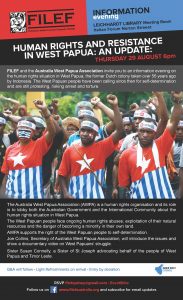


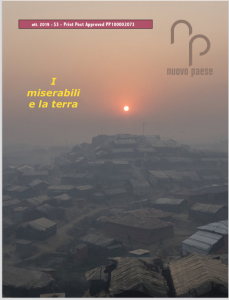


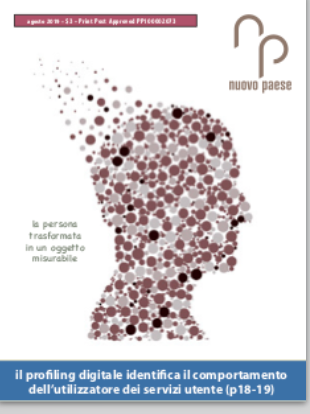
 Il mercato siamo noi
Il mercato siamo noi
